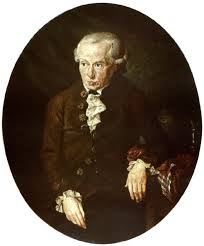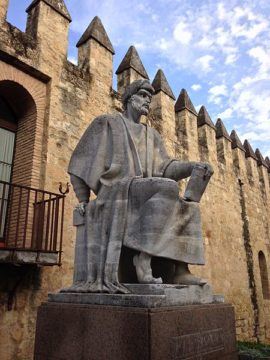by Emrys Westacott

Immanuel Kant (1724-1804) is widely touted as one of the greatest thinkers in the history of Western civilization. Yet few people other than academic philosophers read his works, and I imagine that only a minority of them have read in its entirety the Critique of Pure Reason, generally considered his magnum opus. Kantian scholarship flourishes, with specialized journals and Kant societies in several countries, but it is largely written by and for specialists interested in exploring subtleties and complexities in Kant's texts, unnoticed influences on his thought, and so on. Some of Kant's writing is notoriously difficult to penetrate, which is why we need scholars to interpret his texts for us, and also why, in two hundred years, he has never made it onto the New York Times best seller list. And some of the ideas that he considered central to his metaphysics–for instance, his views about space, time, substance, and causality–are widely held to have been superseded by modern physics.
So what is so great about Kant? How is his philosophy still relevant today? What makes his texts worth studying and his ideas worth pondering? These are questions that could occasion a big book. What follows is my brief two penn'th on Kant's contribution to modern ways of thinking. I am not suggesting that Kant was the first or the only thinker to put forward the ideas mentioned here, or that they exhaust what is valuable in his philosophy. My purpose is just to identify some of the central strains in his thought that remain remarkably pertinent to contemporary debates.
1. Kant recognized that in the wake of the scientific revolution, what we call “knowledge” needed to be reconceived. He held that we should restrict the concept of knowledge to scientific knowledge–that is, to claims that are, or could be, justified by scientific means.
2. He identified the hallmark of scientific knowledge as what can be verified by empirical observation (plus some philosophical claims about the framework within which such observations occur). Where this isn't possible, we don't have knowledge; we have, instead, either pseudo-science (e.g. astrology), or unrestrained speculation (e.g. religion).
3. He understood that both everyday life and scientific knowledge rests on, and is made orderly, by some very basic assumptions that aren't self-evident but can't be entirely justified by empirical observations. For instance, we assume that the physical world will conform to mathematical principles. Kant argues in the Critique of Pure Reason that our belief that every event has a cause is such an assumption; perhaps, also, our belief that effects follow necessarily from their causes; but many today reject his classification of such claims as “synthetic a priori.” Regardless of whether one agrees with Kant's account of what these assumptions are, his justification of them is thoroughly modern since it is essentially pragmatic. They make science possible. More generally, they make the world knowable. Kant in fact argues that in their absence our experience from one moment to the next would not be the coherent and intelligible stream that it is.
Read more »




 What can I make of these decisions emerging out of the blue, which I appear to act upon “freely?” What are the consequences of how I choose to react to them? Although these are vague philosophical musings, let’s look instead at the science of it all. I’m a layman, neither scientist nor philosopher, but as we are rediscovering, scientists are a less fuzzy lot than philosophers. I’m more likely to ask the woman with the medical degree about the true meaning of my dry cough than to ask philosopher
What can I make of these decisions emerging out of the blue, which I appear to act upon “freely?” What are the consequences of how I choose to react to them? Although these are vague philosophical musings, let’s look instead at the science of it all. I’m a layman, neither scientist nor philosopher, but as we are rediscovering, scientists are a less fuzzy lot than philosophers. I’m more likely to ask the woman with the medical degree about the true meaning of my dry cough than to ask philosopher